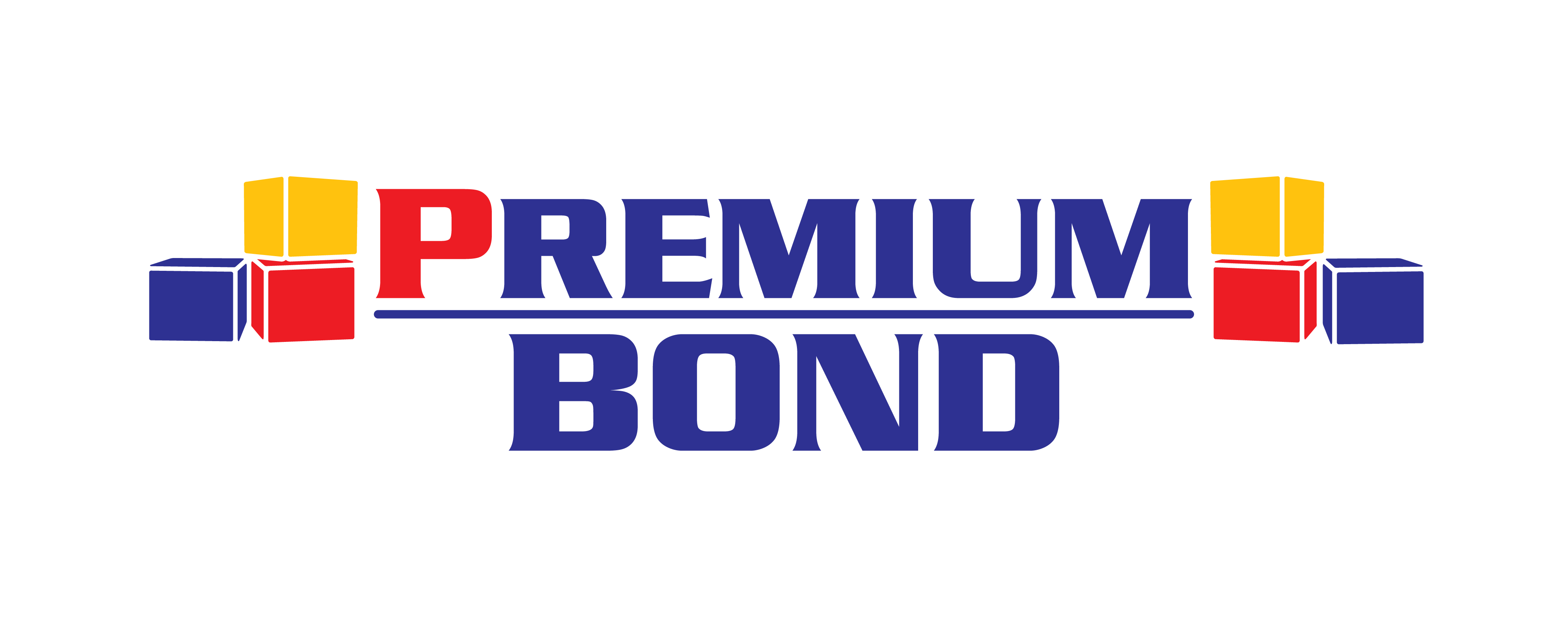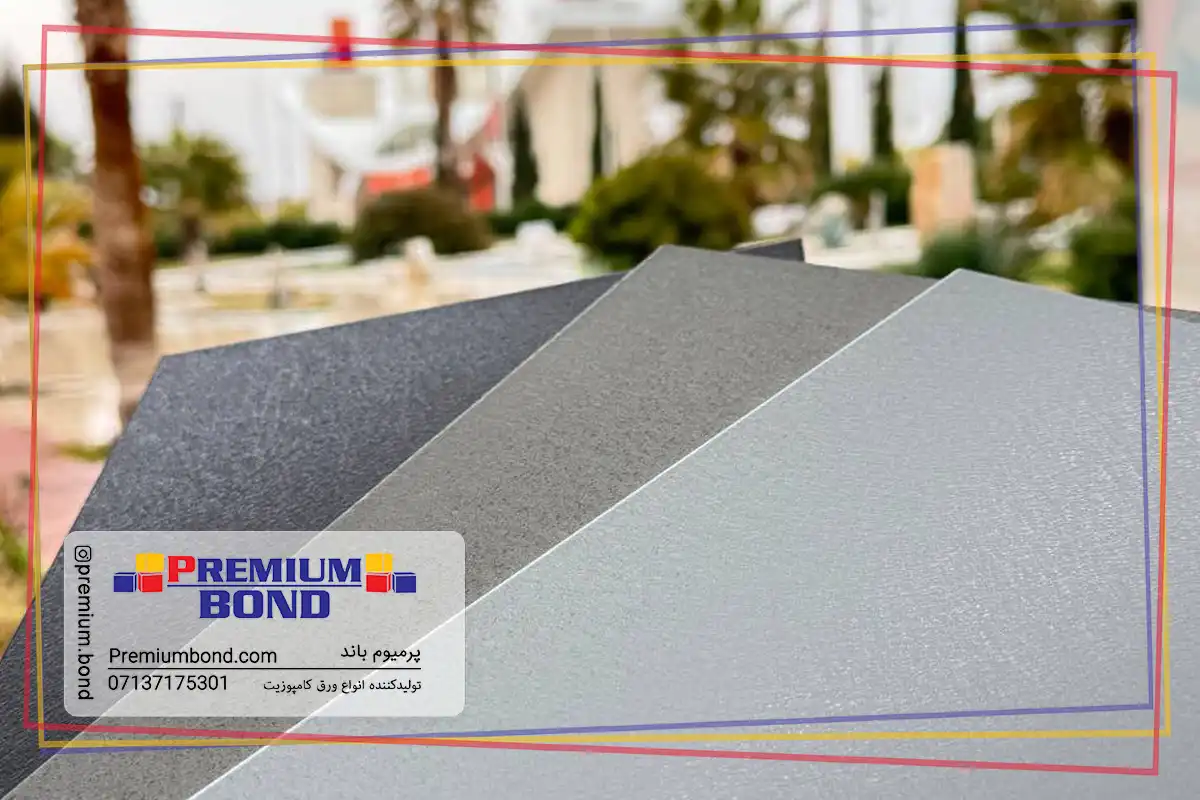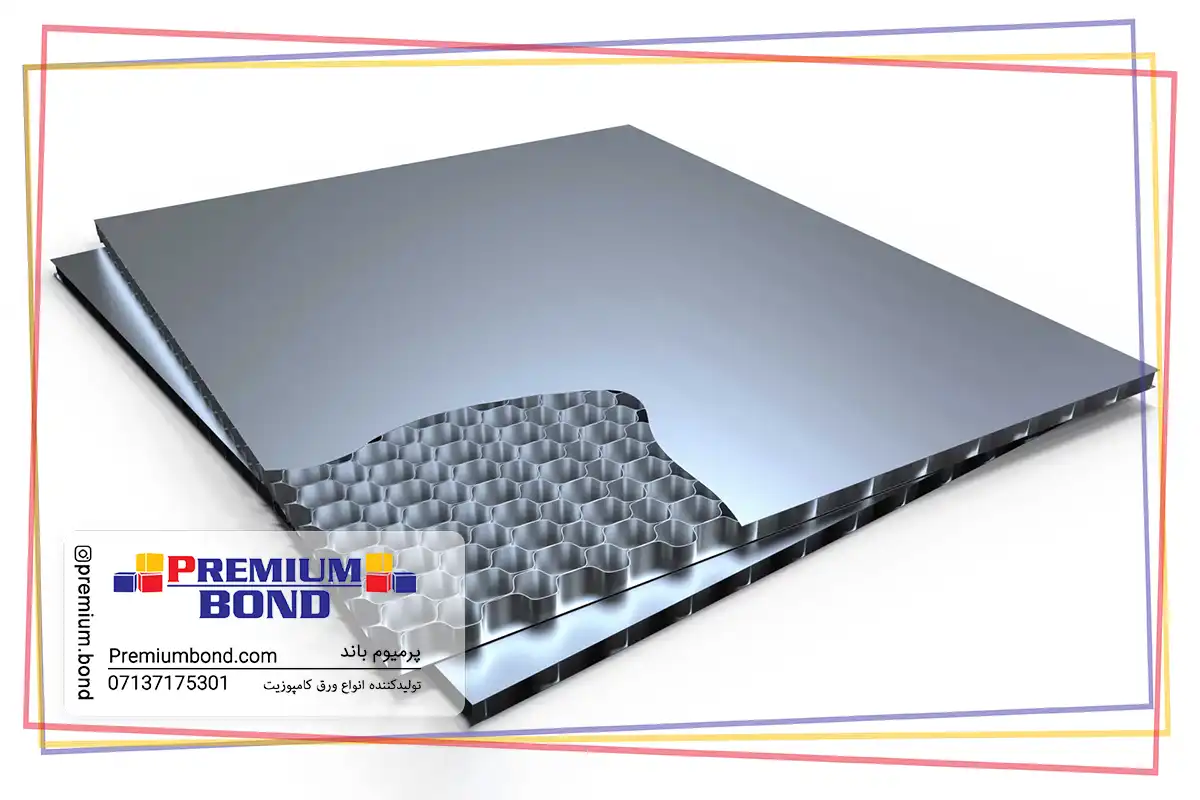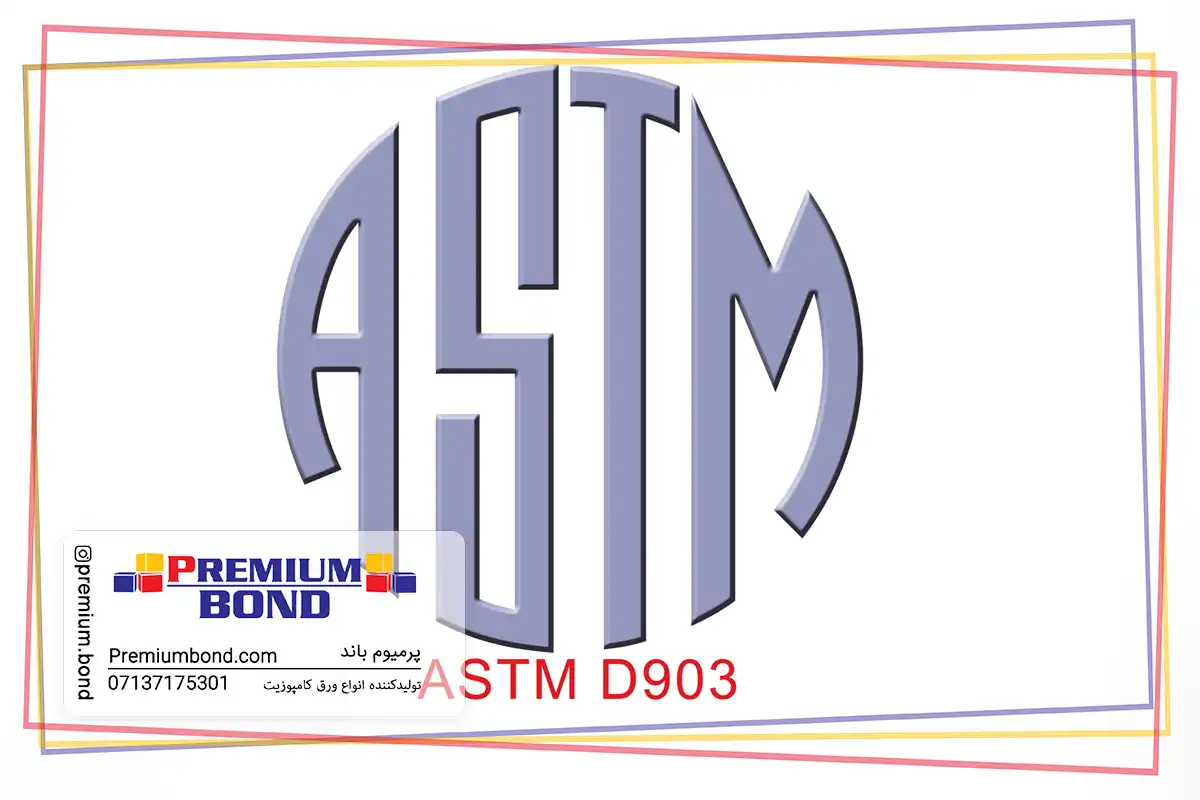In recent years, the rapid development of the construction industry has led to the widespread use of innovative materials, among which aluminium composite panels stand out for their unique advantages. But what are aluminium composite panels, and why have they become so popular? Essentially, composite panels are materials produced by combining two or more distinct substances to create a new product with superior properties. In Iran, the most common types of composite panels are typically constructed with three main layers: a core material encased between two outer aluminium sheets. There are various types of aluminium composite panel, each designed with specific features to meet the demands of modern architectural projects.
History of Aluminium Composite Panels
Aluminium composite panels were first produced and used in Germany. This modern material quickly attracted the attention of the construction industry because it offered limitless possibilities in design and implementation. With the spread of modern architecture and a growing interest in constructing towers and high-rise buildings, the demand for lightweight and efficient materials became more noticeable than ever, and aluminium composite panels managed to meet these needs effectively.
How Do Aluminium Composite Panels Help the Environment?
In the structure of aluminium composite panels, the outer aluminium layers play a crucial role. Although aluminium is a non-renewable resource, it can be easily separated and recycled. After their useful life, the aluminium layers of composite panels can be detached from the core and reintroduced into various industrial cycles. Recycled aluminium is widely used to manufacture products such as pharmaceutical tablet foils, food packaging, and even beverage cans.
The central core of these panels is generally made of polyethylene. Notably, recycled polyethylene is often used instead of primary, fresh materials in the production of this core. This approach not only reduces costs but also contributes to environmental protection, as polyethylene can be crushed and recycled again after it reaches the end of its life cycle. In some types of composite panels, especially the fire-retardant ones, mineral materials are used instead of polyethylene. This replacement not only increases fire resistance but also enhances the overall environmental compatibility of this material.
Types of Aluminium Composite Panels in Iran
What are aluminium composite panels? Aluminium composite panels (ACPs) are widely used in construction for cladding, facades, and interior design. The Iranian market offers a broad selection of these innovative building materials, known for their light weight, versatility, and aesthetic appeal. Understanding the types of composite panels available and their specific features is essential for making the best choice for every project.
Specialized Comparison of Various Features
| Category | Type | Main Features | Advantages |
|---|---|---|---|
Fire Resistance | Standard | Standard polyethylene core |
|
| Flame Retardant | Polyethylene core with **fire-resistant** additives |
| |
| Fireproof | Mineral-based fire-resistant core |
| |
Surface Coating | Nano | Self-cleaning nano coating |
|
| Wood Pattern | Coating resembling natural wood |
| |
| Stone Pattern | Coating resembling natural stone |
| |
| Textured | Special surface design with unique texture |
| |
| Mirror | Glossy, reflective surface |
| |
Paint Coating | FEVE | Polyurethane core with fluoropolymer surface coating |
|
| PVDF | Combination of fluorocarbon resin, pigment, and ester solvent |
| |
| Polyester | Basic coating without extra protective layers |
|
Types of Composite Panels Based on Fire Resistance
Fire resistance is a crucial factor, especially for high-rise and commercial buildings. The types of aluminium composite panel (ACP) in Iran, according to fire resistance, are as follows:
1. Standard ACP
Standard ACPs have a polyethylene core and are mainly intended for standard building exteriors and interior spaces where fire risk is low.
Advantages
- Affordable
- Easy to install
- Lightweight and easy to handle
- Wide color and pattern variety
- Great for interiors
2. Fire-Retardant ACP
Fire-retardant composite panels feature modified cores that slow down the spread of flames. These types of composite panels are ideal for buildings needing enhanced safety but not full fireproofing.
Advantages
- Greater fire resistance
- Slower flame spread
- Reasonable pricing
- Safer for medium-sized buildings
3. Fireproof ACP (A2/Non-Combustible ACP)
Fireproof panels use mineral-filled cores, providing maximum safety and meeting the strictest fire standards, making them the first choice for high-rise and public buildings.
Advantages
- Excellent fire resistance
- Suitable for high-rise buildings
- Long life-span and durability
- Compliant with building regulations
Types of Aluminium Composite Panels by Surface Finish
Aluminium composite panels come in various surface finishes, enhancing both their looks and performance. Here are some of the most popular options found in Iran:
1. Nano Coated Composite Panels
Nano-coated ACPs feature an advanced composite sheet technology that prevents dirt and dust from sticking. They’re self-cleaning, making building maintenance much easier.
Advantages
- Self-cleaning
- UV resistant
- Lower maintenance costs
- More vibrant color, less fading
- Durable against acid rain
2. Wood-Finish ACP
Wood-finish panels offer the warm appearance of natural wood while eliminating real wood’s drawbacks like rot and pest damage. They look so realistic that it’s often hard to tell the difference.
Advantages
- Resistant to moisture and pests
- Stable color under sunlight
- No need for special maintenance
- Long lifetime
3. Stone-Finish ACP
Stone-effect composite panels provide the sophisticated look of materials like granite or marble, but are much lighter and easier to install.
Advantages
- Lightweight yet strong
- Simple and quick to install
- High impact resistance
- Suitable for both interiors and exteriors
4. Brushed (Scratch-Resistant) ACP
These panels have a special textured surface that’s very resistant to scratches, perfect for high-traffic zones.
Advantages
- Highly scratch-resistant
- Unique visual appeal
- Durable and easy to keep clean
5. Mirror Finish ACP
Mirror composite panels shine with a high-gloss, light-reflecting surface that creates striking visual effects—ideal for modern designs.
Advantages
- Stunning modern look
- Increases natural light
- Mixes well with other materials
Expert Comparison of Composite Panel Coating Types
Guide: This table helps you select the most suitable coating based on your project’s needs. FEVE is the highest quality and most expensive, PVDF is the balanced all-rounder, and Polyester offers an economical option.
| Feature | FEVE Coating | PVDF Coating | Polyester Coating |
|---|---|---|---|
| Technical Specifications | |||
| Main Composition | Polyurethane core with fluoropolymer top coating | Fluorocarbon resin, pigment and ester solvent blend | Simple polymer coating, no additional protective layers |
| Production Method | Advanced nano-tech with multi-stage baking | Special thermal process to solidify coating | Simple single-stage thermal process |
| Relative Price | |||
| Performance Characteristics | |||
| Gloss & Clarity | Excellent | Good | Average |
| Weather Resistance | Excellent (15+ years) | Good (10–۱۵ years) | Poor (3–۵ years) |
| UV Resistance | Excellent | Good | Poor |
| Scratch Resistance | Excellent | Average | Poor |
| Color Stability | Excellent | Good | Poor |
| Chemical Resistance | Excellent | Good | Average |
| Applications & Uses | |||
| Exterior Facade Use | Highly suitable | Suitable | Not recommended |
| Interior Spaces | Excellent | Excellent | Good |
| Polluted Urban Areas | Ideal choice | Appropriate | Unsuitable |
| Coastal/Marine Areas | Ideal choice | Appropriate | Unsuitable |
| High-rise Buildings | Ideal | Appropriate | Unsuitable |
| Maintenance & Durability | |||
| Estimated Lifespan | ۲۰+ years | ۱۵–۲۰ years | ۵–۱۰ years |
| Ease of Maintenance | Very easy | Easy | Average |
| Cleaning Intervals | Every 2–۳ years | Annually | Every 6 months |
| Repairability | Relatively difficult | Average | Relatively easy |
Application Recommendations:
- FEVE Coating: Ideal for luxury projects, high-rise buildings, coastal zones, and areas with heavy air pollution
- PVDF Coating: Suitable for most standard residential and commercial buildings; offers good balance of price and performance
- Polyester Coating: Ideal for budget projects, interior use, or short-term/temporary applications
Types of Paint Coating for Aluminium Composite Panels
Paint finish directly impacts both the longevity and appearance of composite panels. Iran’s market offers several main types:
1. FEVE Coating
This next-generation coating uses fluoropolymer technology, resulting in a high-gloss, weather-resistant finish that keeps buildings looking new for years.
Advantages
- Brilliant gloss and clarity
- Very long-lasting color
- Superior weather and scratch resistance
2. PVDF Coating
PVDF (polyvinylidene fluoride) is among the most popular composite panel finishes, appreciated for its balanced price, performance, and color variety. It’s especially reliable for exterior applications.
Advantages
- Excellent weather resistance
- Good color longevity
- Wide range of colors
- Affordable
3. Polyester Coating
Polyester-coated panels are the most affordable. However, they are mainly for interiors since they lack extra protection against outdoor weather or sunlight.
Advantages
- Economic
- Good for interiors
- Easy to install and repair
Structure and Components of Aluminium Composite Panels
To truly understand what are aluminium composite panels, it is important to become familiar with their construction. The types of composite panels commonly used in the building industry consist of several key layers:
- Outer Layers: The external surfaces are made up of two aluminium sheets that form the panel’s durable outer layer.
- Core Layer: The central core is typically composed of mineral compounds and polyethylene, usually with a thickness of 4 to 6 millimeters.
- Intermediate Layers: Between the outer and core layers are adhesive films, protective coatings, and sometimes additional polyethylene, all added to improve strength and quality.
The Benefits of Aluminium Composite Panels
The types of aluminium composite panel are widely used in modern architecture because of their remarkable advantages. Here are the major benefits of using these innovative materials:
1. Lightweight Yet Strong
Each square meter of this composite sheet typically weighs only 6 to 8 kilograms. This makes them significantly lighter than traditional materials like stone, brick, or glass—a crucial advantage, especially for tall buildings. This lightness contributes greatly to the structural integrity of any construction.
2. Flexible and Easily Shapable
One of the most impressive features of aluminium composite panels is their high flexibility. Designers can use them to create complex forms and contours that are difficult or impossible to achieve with other building materials.
3. Sound and Thermal Insulation
The unique installation method of these composite panels—which involves a gap between the sheet and the building wall—creates an effective barrier against noise and heat. This helps reduce energy consumption while improving building acoustics.
4. Waterproof and Resistant to Corrosion
Thanks to cleverly designed grooves, these panels are highly waterproof, directing rain and snow away from the building’s exterior. The use of aluminium also grants excellent resistance to rust and harsh weather conditions.
5. Variety in Color and Size
There are numerous types of composite panels when it comes to colors and sizing. Panels come in an extremely wide range, offering nearly endless design options to architects and builders.
6. Easy to Replace
Each aluminium composite panel can be installed and removed independently, so if a particular section gets damaged, you can replace just that piece—significantly cutting down on maintenance time and costs.
These unique features and advantages have made the types of aluminium composite panel one of the most popular choices for building facades in Iran.
Technical Specifications of Aluminium Composite Panels
The standard aluminium composite panel usually weighs around 5.5 kg per square meter, with a typical thickness of 4 millimeters. Panels are most commonly available in standard sizes of 125 by 320 centimeters, although many manufacturers can customize the dimensions to specific project needs. All products are manufactured in accordance with international standards and are certified for fire and weather resistance.
Main Applications of Aluminium Composite Panels
The wide range of types of aluminium composite panels available in Iran, each with its own unique characteristics, means these panels have extensive applications in the construction industry. Here are the most common uses:
Exterior Building Facades
One of the most well-known uses of aluminium composite panels is in modern building exteriors, as they are among the most sought-after facade materials. Thanks to their lightweight and resilience to harsh weather, these panels are ideal for contemporary facades. The broad selection of colors and finishes allows architects to craft truly unique and creative designs.
Interior Decoration
Inside buildings, the different types of composite panels are used for various decorative and functional purposes, from wall and ceiling coverings to commercial and office designs. Their flexibility and range of finishes let designers bring even the most ambitious ideas to life. Wood-effect and stone-effect aluminium composite panels are particularly popular for interior use.
High-Rise Buildings and Towers
One of the most important uses for the aluminium composite sheet is in high-rise buildings, where facade weight is crucial. With a weight of only 6–۸ kilograms per square meter, these panels are ideal for skyscrapers, resisting both harsh wind and extreme weather at altitude.
When choosing a composite panel for high-rise projects, it is vital to select a fire-retardant or fireproof type for optimum safety. Their waterproofing properties also make them ideal for tower facades, preventing moisture from penetrating the building.
Premium Bond Composite Panel Price and Sales
Considering market fluctuations and the variety in product quality, the price of aluminium composite panels can vary. For up-to-date prices, you can contact our expert consultants. As a specialized distributor, Premium Bond offers its products directly and in bulk, ensuring the best quality and price. With active branches in Tehran, Mashhad, Isfahan, Shiraz, and Tabriz, we are ready to serve customers throughout the country.
Reasons for the Popularity of Composite Panels in the Construction Industry
What are aluminium composite panels? The answer lies in their intelligent structure, which is made from a combination of aluminium layers and a central core. The types of composite panels available in Iran range from fire-retardant models to a variety of decorative façade options.
These types of aluminium composite panels are distinguished by their outstanding qualities such as lightweight, durability, and flexibility. For these reasons, they have become the preferred choice for modern exteriors, interior design, and high-rise buildings.







